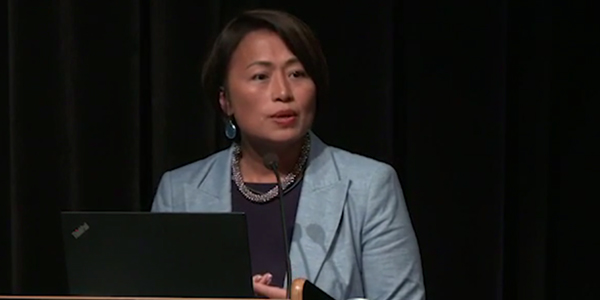This behavioral change guide is helpful for confidence-boosting at ANY age (not just tween girls) – to inspire greatness in coworkers, mentees, friends & family
A food hall, run only by women of color and immigrants, is challenging the “boys’ club” of kitchens
For many female chefs of color, inclusivity in the restaurant industry remains a glaring issue. Enter La Cocina Municipal Marketplace – a $5 million project partially funded by the city of San Francisco (coming spring 2019). The idea was proposed by La Cocina, a non-profit incubator for low-income entrepreneurs in the food space. The goal of the Municipal Marketplace will be to help aspiring female restaurant owners struggling with one of the largest problems in San Francisco: the rising price of real estate.
How we describe male and female job applicants differently
Men are often called “superb” and “exceptional” while women are called “sensitive” and “caring”. Who are these gatekeepers using such words? The gatekeepers aren’t just men; women are also using doubt raisers and choosing communal words to describe female job applicants.
Are you an “insecure overachiever”?
Insecure overachievers often doubt their worth in highly competitive environments, and so work harder and harder to compensate. For some, the thrill of adding value to their company can feel almost like a drug. But this drive to excel can lead to physical and mental health problems.
Bold ideas to help women in the workforce beat the odds
Care.com CEO & Founder Sheila Lirio Marcelo outlines bold ideas for cracking the glass ceiling with legislation – from a domestic workers bill of rights to establish basic labor protections in Seattle, to the California law requiring women on boards of public companies – pushing for equality for all, because ambition and hard work aren’t enough anymore.
Eventbrite, helmed by CEO and co-founder Julia Hartz, soars 70% in IPO
Julia and Kevin Hartz started the company in 2006. Julia Hartz, the CEO, was formerly a television executive with Fox’s FX channel, and Kevin Hartz, now executive chairman, was CEO of Xoom, a money transmitter acquired by PayPal in 2015.
Creative side helps her protect people from hackers
Amanda Rousseau was among the first group of malware researchers to reverse-engineer the WannaCry ransomware virus.
6 female scientists on how to confront gender bias in the workplace
Chemistry Professor Polly Arnold at the University of Edinburgh in the United Kingdom is the founder of SciSisters, a network for senior women in STEM in Scotland.
Silicon Valley’s equity gap: Women own just 9%
Cap table wealth enables individuals to fund the next generation of products and institutions that shape our industry — and increasingly the world — through investing, starting a venture firm, founding a startup or funding political and philanthropic campaigns. #TheGapTable means that women have a disproportionately low share of startup equity and capture just a fraction of the industry’s wealth creation— and we now have the data to prove it.
Is it time for a ‘slow food’ movement for the internet?
Nicole Wong, the former deputy CTO of the United States, lays out what that might look like on Recode Decode with Kara Swisher. Don’t miss the podcast.











